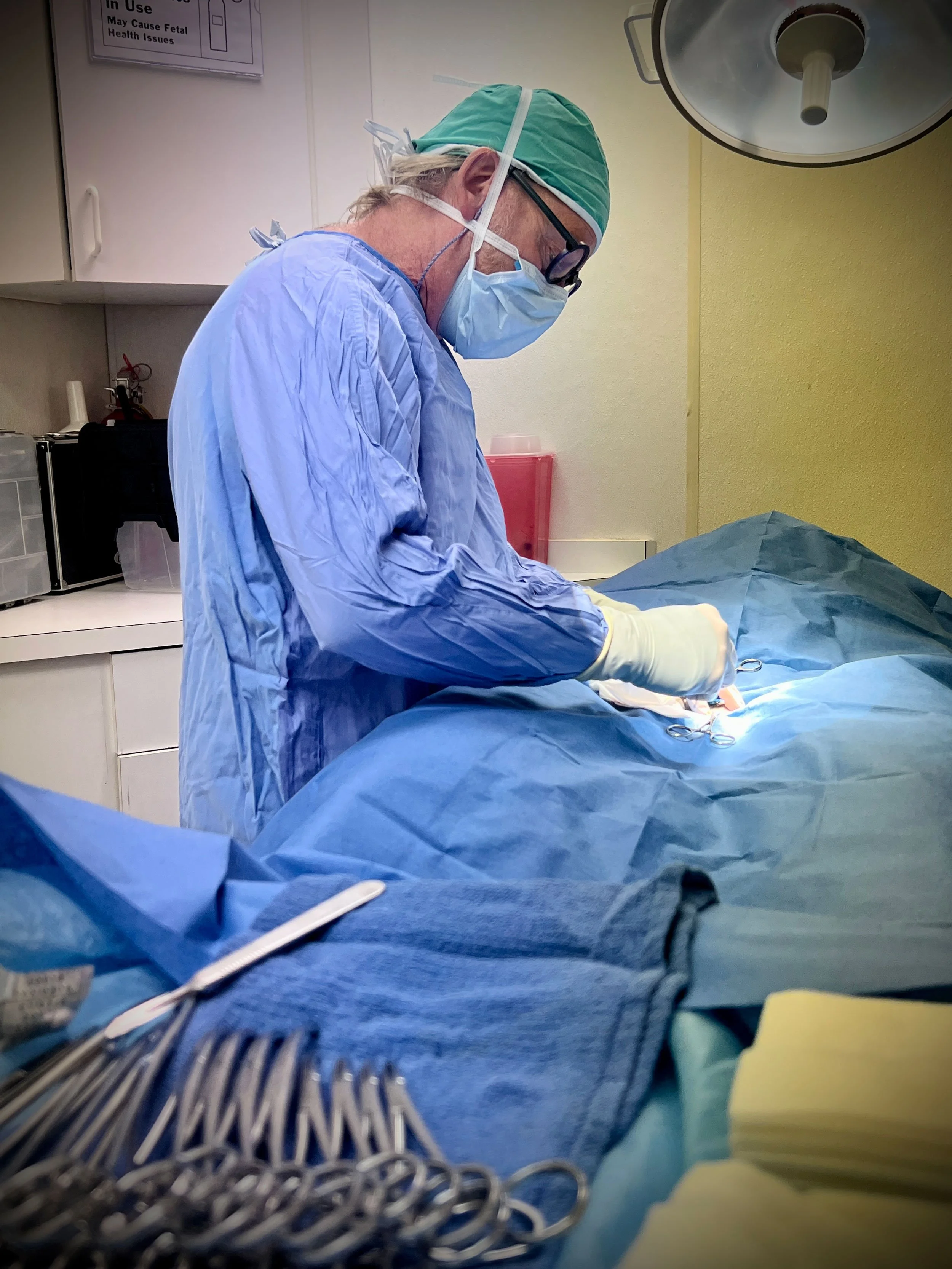VCB Surgery
Surgery
While spaying and neutering are the most common surgeries, there are other common surgeries as well that can be used to alleviate or correct the symptoms of a number of conditions and diseases. Learn more about the different types of surgeries, the process involved,and how this affects your pet.
Canine and Feline Spaying
Canine and Feline Neutering
Umbilical Hernia repair
Inguinal Hernia repair
Ear Hematoma Repair
Laceration Repairs
Surgical Removal of Dog Warts
Removal of eyelid warts
Removal of lipomas
Mammory Tumor Removal
Abdominal Exploratory Laporotomy
Surgical Intestinal Biopsies
Cystotomy
Enterotomy
Gastrotomy
Intestinal Anastamosis
Inguinal Hernia repair
Spleenectomy
Pyometra Surgery
Gastrpexy
Gastric Torsion
Esophagostomy
Vulvaplasty
VCB Anesthesia
All patients undergoing general anesthesia are required to have pre-anesthetic blood testing to screen for possible metabolic disease. All surgical patients have an intravenous catheter and are maintained on IV fluids for the length of their procedure. The anesthetic drugs chosen for our patients are the safest available. Patients undergoing invasive procedures are monitored with the latest electronic monitoring equipment. This monitoring equipment allows the doctor to have continuous information on the patient's heart rate, respiratory rate, temperature, blood pressure, electrocardiograph (EKG) status, and blood oxygen saturation. This information allows the doctor to tailor each patient's anesthesia to his or her needs. We feel that advanced anesthetic monitoring equipment, though costly, is a necessity in providing the best possible patient care.
Pain Management
Surgery is inevitably associated with some postoperative pain. We take pain management quite seriously because we believe that pain has no positive benefit to the recovery process, as some have previously thought. We tailor our pain management plans to each individual patient and procedure. We believe highly in preempting pain and use several drugs in combination, both pre- and post-operatively, to attain the most comfortable outcome for your pet. We are careful to choose medications that are the safest for the task at hand.
The Surgical Team
Surgery at VCB is performed only by Veterinarians. However, the surgeon is never without the help of at least one other trained surgical assistant. The surgeon operates only after scrubbing and donning a cap, gown, mask, and sterile gloves. Surgery is performed using sterile technique in a sterile surgical field. To aide the surgeon, the patient is illuminated by special halogen low-heat surgical lighting. All surgical instruments are sterilized by steam autoclave and are double wrapped according to AAHA standards. Patients are closely monitored for several hours after waking up from anesthesia. The utmost care is taken by the entire staff to provide your pet the greatest possible safety and chances for a healthy, comfortable recovery.
We at VCB feel that the level of care provided to our surgical patients is unsurpassed by any other veterinary facility. We take pride in the quality of care we give and we thank you for choosing us to provide your pet with the best care possible.
If you have any questions or concerns regarding your pet's surgery, please call us at 404-841-9679.
